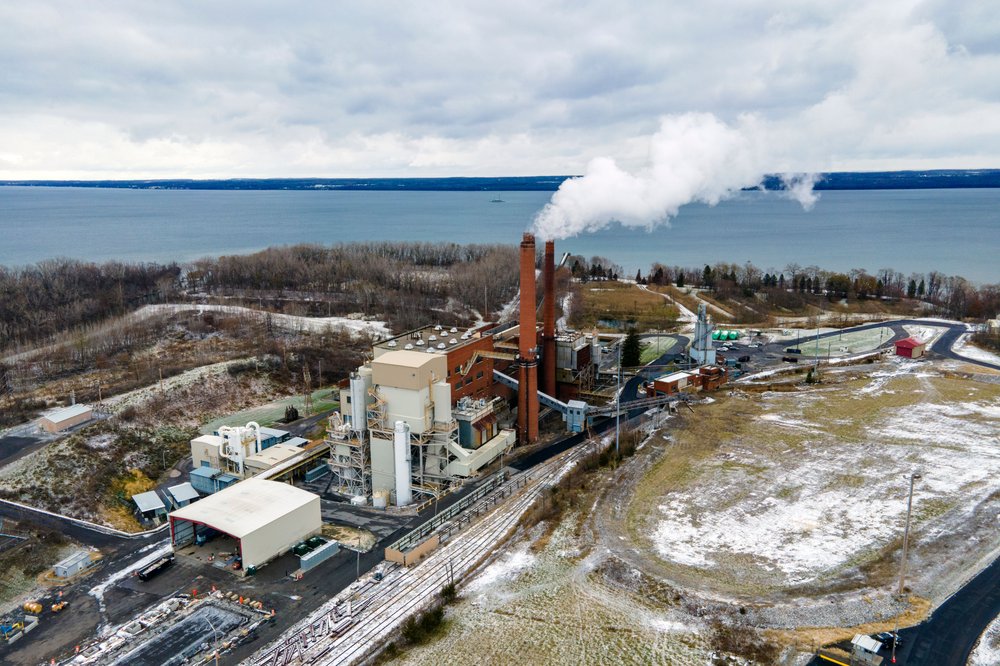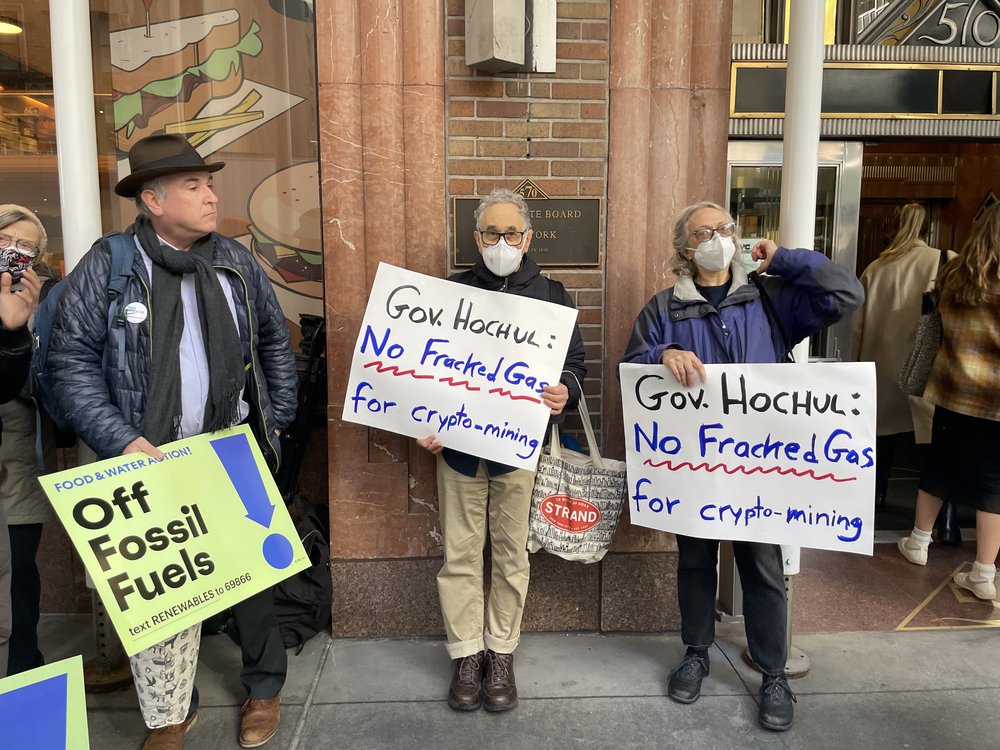Permit denied: New York says Bitcoin mining operation in Finger Lakes violates climate law
June 30, 2022, 5:44 p.m.
Greenidge Generation, the natural gas-fueled facility, is supposed to close under the decision. But its owners plan to keep operating, as they fight for an appeal.

The New York State Department of Environmental Conservation has denied the permit renewal for Greenidge Generation, a natural-gas-fired plant in the Finger Lakes that has been powering its own energy-intensive cryptocurrency mining operation for nearly two years.
The decision comes after months of delay by regulators and protests by critics who, for a time, followed Gov. Kathy Hochul around the state to voice their concern.
Despite the wait, Finger Lakes resident and activist Yvonne Taylor said she would still be “popping bubbly” to celebrate the victory after more than a year of fighting its air permit renewal.
“There will be a massive celebration across the Finger Lakes region with lots of Finger Lakes bubbly being uncorked among friends,” said Taylor, founder of Seneca Lake Guardian, a local environmental advocacy group. “The Greenidge facility runs contrary to everything about the Finger Lakes where our driving economic engine is clean air and clean water.”
But Greenidge’s owners told Gothamist the DEC’s decision will not interrupt their current operations for now, as they appeal. The ruling says Greenidge is in violation of New York’s Climate Leadership and Community Protection Act (CLCPA) — by nearly tripling the plant’s carbon emissions during the plant’s first year of cryptomining.
The 20,000-computer farm operates continuously, solving complex algorithms that release new pieces of Bitcoin. The site was formerly a coal plant that was shut down in 2011. Atlas Holdings LLC, a Connecticut-based investment company, bought the decommissioned facility and invested $100 million in converting it to natural gas, roughly equal to the value of the Bitcoin it mined last year.
By 2017, Greenidge was generating electricity from its 107-megawatt facility. At full capacity, that would be enough to power more than 75,000 average homes in New York.
From 2017-2019, before the plant began its cryptomining operation, its annual carbon emissions were about 160,000 tons. In the first year of mining in 2020, emissions increased to more than 400,000 metric tons.
In the second year, emissions jumped again – more than 20%, totaling more than 500,000 metric tons of greenhouse gases being released every year into the air.

Protestors gather in Midtown Manhattan on February 10th, 2022 to ask Gov. Kathy Hochul to put a moratorium on Greenidge Generation.
The DEC found these continued dramatic increases were in violation of state climate laws that require all greenhouse gas emissions to be cut by at least 85% by mid-century, and a complete transition to zero emission energy sources by 2040. The Greenidge facility is on track to increase its emissions by more than 30% for this year, according to DEC’s estimates.
According to the electricity generation data provided to the DEC by Greenidge, the facility is using the majority of its energy to support its mining work. The DEC deemed this as a change in its primary purpose of providing energy to the electric grid.
“We believe there is no credible legal basis whatsoever for a denial of this application because there is no actual threat to the CLCPA from our renewed permit,” Greenidge wrote to Gothamist in a statement via email. “It is not, and cannot be transformed into a politically charged cryptocurency permit.”
The company has 30 days to appeal the decision to the Office of Hearings and Mediation Services. The facility can continue to run during that time and until the appeal is decided.
In Greenidge’s statement, the company says it intends to appeal and assures investors that work will not be interrupted. If their appeal is denied, any operations that generate emissions will be illegal without the Title V permit.
“Now the die is cast. New York state will do everything it can to meet its greenhouse gas emissions goals,” said Anthony Ingraffea, a Cornell civil engineering professor who helped prepare the environmental analysis for local advocacy groups. “The CLCPA will be further energized, vitalized and recognized as the law of everyone and every sector.”
This spring, the New York Legislature passed a moratorium on cryptomining in the state until its environmental impacts can be studied. The bill is awaiting signature by Hochul. Mayor Eric Adams is a vocal proponent of cryptocurrency and has called for Hochul to veto the bill.
The mayor’s office didn't immediately respond to a request for comment.
A Bitcoin mining operation in the Finger Lakes runs up against New York's climate law After months of delay, NY still reviewing 4,000 public comments for Finger Lakes power plant owned by Bitcoin miners